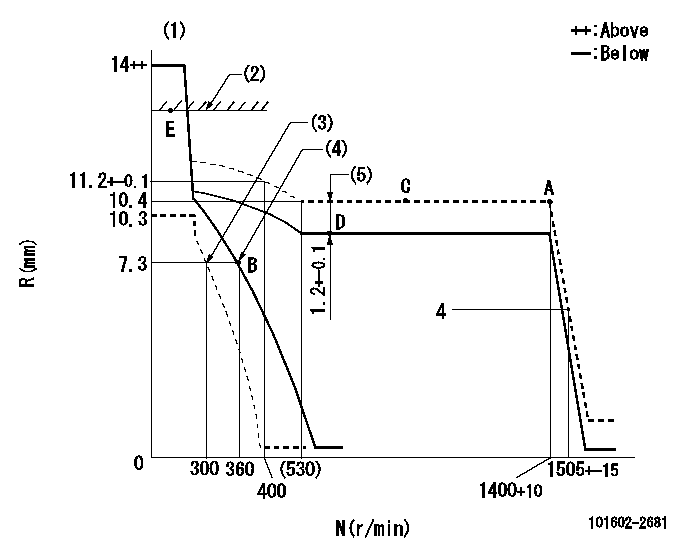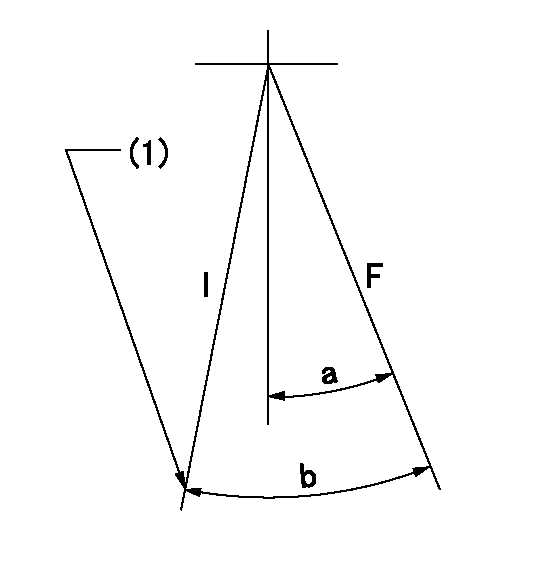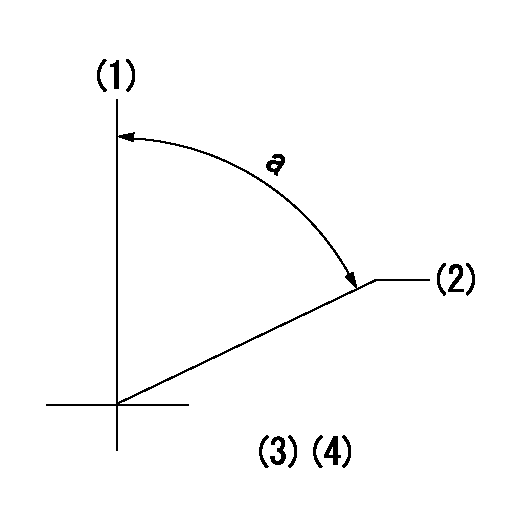Information injection-pump assembly
ZEXEL
101602-2681
1016022681
HINO
220203970A
220203970a

Rating:
Cross reference number
ZEXEL
101602-2681
1016022681
HINO
220203970A
220203970a
Zexel num
Bosch num
Firm num
Name
Calibration Data:
Adjustment conditions
Test oil
1404 Test oil ISO4113 or {SAEJ967d}
1404 Test oil ISO4113 or {SAEJ967d}
Test oil temperature
degC
40
40
45
Nozzle and nozzle holder
10578-8140
Bosch type code
EF8511/9A
Nozzle
10578-0000
Bosch type code
DN12SD12T
Nozzle holder
10578-2080
Bosch type code
EF8511/9
Opening pressure
MPa
17.2
Opening pressure
kgf/cm2
175
Injection pipe
Outer diameter - inner diameter - length (mm) mm 6-2-600
Outer diameter - inner diameter - length (mm) mm 6-2-600
Overflow valve
131424-5720
Overflow valve opening pressure
kPa
255
221
289
Overflow valve opening pressure
kgf/cm2
2.6
2.25
2.95
Tester oil delivery pressure
kPa
157
157
157
Tester oil delivery pressure
kgf/cm2
1.6
1.6
1.6
Direction of rotation (viewed from drive side)
Right R
Right R
Injection timing adjustment
Direction of rotation (viewed from drive side)
Right R
Right R
Injection order
1-4-2-6-
3-5
Pre-stroke
mm
3.4
3.35
3.45
Beginning of injection position
Drive side NO.1
Drive side NO.1
Difference between angles 1
Cal 1-4 deg. 60 59.5 60.5
Cal 1-4 deg. 60 59.5 60.5
Difference between angles 2
Cyl.1-2 deg. 120 119.5 120.5
Cyl.1-2 deg. 120 119.5 120.5
Difference between angles 3
Cal 1-6 deg. 180 179.5 180.5
Cal 1-6 deg. 180 179.5 180.5
Difference between angles 4
Cal 1-3 deg. 240 239.5 240.5
Cal 1-3 deg. 240 239.5 240.5
Difference between angles 5
Cal 1-5 deg. 300 299.5 300.5
Cal 1-5 deg. 300 299.5 300.5
Injection quantity adjustment
Adjusting point
A
Rack position
10.4
Pump speed
r/min
1400
1400
1400
Average injection quantity
mm3/st.
86
84
88
Max. variation between cylinders
%
0
-3
3
Basic
*
Fixing the lever
*
Boost pressure
kPa
26.7
26.7
Boost pressure
mmHg
200
200
Injection quantity adjustment_02
Adjusting point
B
Rack position
7.3+-0.5
Pump speed
r/min
360
360
360
Average injection quantity
mm3/st.
9
7.5
10.5
Max. variation between cylinders
%
0
-15
15
Fixing the rack
*
Boost pressure
kPa
0
0
0
Boost pressure
mmHg
0
0
0
Injection quantity adjustment_03
Adjusting point
E
Rack position
-
Pump speed
r/min
100
100
100
Average injection quantity
mm3/st.
98
98
108
Fixing the lever
*
Boost pressure
kPa
0
0
0
Boost pressure
mmHg
0
0
0
Rack limit
*
Boost compensator adjustment
Pump speed
r/min
600
600
600
Rack position
R1-1.2
Boost pressure
kPa
2
2
4.7
Boost pressure
mmHg
15
15
35
Boost compensator adjustment_02
Pump speed
r/min
600
600
600
Rack position
R1(10.4)
Boost pressure
kPa
13.3
13.3
13.3
Boost pressure
mmHg
100
100
100
Test data Ex:
Governor adjustment

N:Pump speed
R:Rack position (mm)
(1)Target notch: K
(2)RACK LIMIT
(3)Set idle sub-spring
(4)Main spring setting
(5)Boost compensator stroke
----------
K=7
----------
----------
K=7
----------
Speed control lever angle

F:Full speed
I:Idle
(1)Stopper bolt setting
----------
----------
a=(4deg)+-5deg b=(27deg)+-5deg
----------
----------
a=(4deg)+-5deg b=(27deg)+-5deg
Stop lever angle

N:Pump normal
S:Stop the pump.
(1)Pump speed aa and rack position bb (to be sealed at delivery)
----------
aa=0r/min bb=1-0.2mm
----------
a=21deg+-5deg b=(55deg)
----------
aa=0r/min bb=1-0.2mm
----------
a=21deg+-5deg b=(55deg)
Timing setting

(1)Pump vertical direction
(2)Position of gear's standard threaded hole at No 1 cylinder's beginning of injection
(3)-
(4)-
----------
----------
a=(70deg)
----------
----------
a=(70deg)
Information:
Introduction
The problem that is identified below does not have a known permanent solution. Until a permanent solution is known, use the solution that is identified below.Problem
Caterpillar has discovered that when certain products equipped with the Caterpillar Regeneration System (CRS) are left idling for extended periods of time (greater than 1 hr) and ambient temps are lower than −15° C (5° F), certain conditions may be met which will disable the ability to regenerate the DPF. If the regeneration system cannot activate, the DPF will accumulate too much soot and must eventually be replaced.The issues Caterpillar has identified in extreme cold ambient conditions are the coolant temperature may become too cold for the regeneration system to activate. Also, the pressure lines which connect the DPF inlet section to the DPF intake pressure sensor may collect condensation and freeze. This freezing causes an E1154 (2) or 3609-18 Low DPF #1 Intake Pressure event code. The event code will disable the regeneration until the fault condition goes away.If you suspect low coolant temperature may be contributing to an inability to regenerate the DPF, review the product status report. The product status report is used for investigating the following fault code trend. If coolant temp is the only issue, you will likely see a combination of the following fault codes:
E995 (2) High DPF #1 Soot Loading or 3719-16 Particulate Trap #1 Soot Load Percent : High - moderate severity (2)
Indicates DPF soot load percent has reached 100 percent
E995(3) High DPF #1 soot loading or 3719-0 Particulate Trap #1 Soot Load Percent : High - most severe (3)
Indicates DPF soot load percent has reached 116 percent
E992(3) DPF Active Regeneration Inhibited Due to Temporary System Lockout or 3714-31 Particulate Trap Active Regeneration Inhibited Due to Temporary System Lockout
Indicates DPF soot load reached 116 percent and 10 minutes has passed since that point. Ability to perform automatic or manual regenerations is disabled. Caterpillar Electronic Technician (ET) regeneration is only type of regeneration allowed.
E991 (3) DPF Active Regeneration Inhibited Due to Permanent System Lockout or 3715-31 Particulate Trap Active Regeneration Inhibited Due to Permanent System Lockout
Indicates DPF soot load percent has reached 140 percent. All types of regeneration are disabled. DPF must be replaced as the amount of soot load will damage the DPF if ignited by regeneration process.If you suspect the pressure line for the DPF intake pressure has frozen, you will see a combination of fault codes. These codes will consist of the codes listed above with the addition of the following codes: E1154 (2) DPF #1 intake pressure low and 3609-18 DPF #1 Intake Pressure : Low - moderate severity (2).Solution
Caterpillar recommends the following when extended idling is likely to occur and ambient temperatures are less than −15° C (5° F):
Turn off machine before the end of shift. Before shutting down, perform a manual DPF regeneration and reduce soot load to 0 percent. The soot load must be above the 15 percent threshold needed to activate a manual DPF regeneration.If extended idling is
The problem that is identified below does not have a known permanent solution. Until a permanent solution is known, use the solution that is identified below.Problem
Caterpillar has discovered that when certain products equipped with the Caterpillar Regeneration System (CRS) are left idling for extended periods of time (greater than 1 hr) and ambient temps are lower than −15° C (5° F), certain conditions may be met which will disable the ability to regenerate the DPF. If the regeneration system cannot activate, the DPF will accumulate too much soot and must eventually be replaced.The issues Caterpillar has identified in extreme cold ambient conditions are the coolant temperature may become too cold for the regeneration system to activate. Also, the pressure lines which connect the DPF inlet section to the DPF intake pressure sensor may collect condensation and freeze. This freezing causes an E1154 (2) or 3609-18 Low DPF #1 Intake Pressure event code. The event code will disable the regeneration until the fault condition goes away.If you suspect low coolant temperature may be contributing to an inability to regenerate the DPF, review the product status report. The product status report is used for investigating the following fault code trend. If coolant temp is the only issue, you will likely see a combination of the following fault codes:
E995 (2) High DPF #1 Soot Loading or 3719-16 Particulate Trap #1 Soot Load Percent : High - moderate severity (2)
Indicates DPF soot load percent has reached 100 percent
E995(3) High DPF #1 soot loading or 3719-0 Particulate Trap #1 Soot Load Percent : High - most severe (3)
Indicates DPF soot load percent has reached 116 percent
E992(3) DPF Active Regeneration Inhibited Due to Temporary System Lockout or 3714-31 Particulate Trap Active Regeneration Inhibited Due to Temporary System Lockout
Indicates DPF soot load reached 116 percent and 10 minutes has passed since that point. Ability to perform automatic or manual regenerations is disabled. Caterpillar Electronic Technician (ET) regeneration is only type of regeneration allowed.
E991 (3) DPF Active Regeneration Inhibited Due to Permanent System Lockout or 3715-31 Particulate Trap Active Regeneration Inhibited Due to Permanent System Lockout
Indicates DPF soot load percent has reached 140 percent. All types of regeneration are disabled. DPF must be replaced as the amount of soot load will damage the DPF if ignited by regeneration process.If you suspect the pressure line for the DPF intake pressure has frozen, you will see a combination of fault codes. These codes will consist of the codes listed above with the addition of the following codes: E1154 (2) DPF #1 intake pressure low and 3609-18 DPF #1 Intake Pressure : Low - moderate severity (2).Solution
Caterpillar recommends the following when extended idling is likely to occur and ambient temperatures are less than −15° C (5° F):
Turn off machine before the end of shift. Before shutting down, perform a manual DPF regeneration and reduce soot load to 0 percent. The soot load must be above the 15 percent threshold needed to activate a manual DPF regeneration.If extended idling is